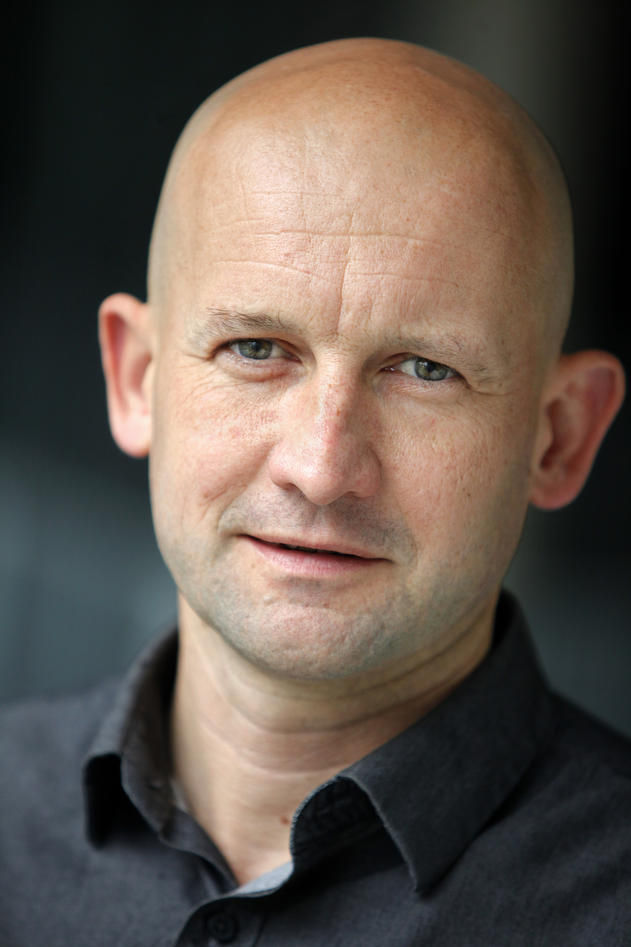CCBIO Seminar - Frédéric Amant
Speaker: Professor Fréderic Amant, KU Leuven, Belgium and University of Amsterdam, the Netherlands. Due to the Covid-19 circumstances, the seminar will be held through a digital platform (Zoom Webinar), so you can attend even from the comfort of your own home.
Main content
Speaker: Professor Frédéric Amant, KU Leuven, Belgium and University of Amsterdam, the Netherlands.
Title: “Exploiting patient-derived preclinical models to identify biomarkers of response/resistance to therapy in (high grade) gynecological cancers”
Place: digital event as webinar in Zoom. Please click this audience link to join the webinar: https://uib.zoom.us/j/68072645617?pwd=WEFmSFhCbjNFdEM0Z3FxcVZ4L0R1QT09 Passcode: N4qvm7nn
The link will be active from 14:20, to allow time for audience to join. Please log on with your name (change any username to readable name). You will for security reasons be muted (both audio and video). Chair will unmute you if you wish to ask questions after the talk (use Raise hand function), or you can write your question in the Chat or Q&A functions.
Who: The webinar is open to all.
Time: November 26, 2020 at 14:30
Chair: Camilla Krakstad
Short bio:
Frédéric Amant, MD, PhD (1967), received his medical degree from the University of Leuven (KU Leuven), Belgium in 1992, completed his specialty training as an obstetrician/gynecologist in 1998, and his subspecialty training in gynecologic oncology in 2000. He is professor at the KU Leuven in Belgium and at the University of Amsterdam (UvA) in the Netherlands. He is an affiliated professor at the university of Bergen (one of CCBIO's international affiliated researchers), Norway and honorary professor at the university of Pretoria, South Africa. He is a specialist in Gynecologic Oncology, heading the research section at the University of Leuven, Belgium. He heads his research section at the Antoni van Leeuwenhoek – Netherlands Cancer Institute and the Amsterdam University Medical Centers. Frédéric Amant chairs the International Network on ‘Cancer, Infertility and Pregnancy’ (INCIP) (www.cancerinpregnancy.org). He is past chair of the European Network for Individualized Treatment of Endometrial Cancer (ENITEC). In addition, he founded Trace, the patient derived tumor xenograft platform at the KU Leuven as well as the Fund for Innovative Cancer Research at the same institute.
Abstract:
The availability of reliable pre-clinical models in oncology research is paramount to biomarker discovery, development of new therapeutic strategies and the investigation of the molecular mechanisms underlying resistance to conventional and novel therapies. Several patient-derived in vitro and in vivo models have been developed over the years, each with its inherent advantages and disadvantages. In our lab, we aim to exploit their complementarity to identify new therapeutic strategies and biomarkers for therapy response/resistance in high-need gynecological cancer patients’ populations.
Uterine sarcomas are rare and heterogeneous tumors characterized by an aggressive clinical behavior. The high recurrence and mortality rates associated with this cancer emphasize the urgent need for novel therapeutic strategies. So far, no molecular prognostic or predictive biomarkers are available to guide treatment choice and modality. Using patient-derived xenograftmodels (PDXs), we described the central role the PI3K/mTOR pathway played in uterine leiomyosarcoma (uLMS) tumor progression and validate its potential as a therapeutic target, identifying p-S6s240 as a predictive biomarker for response to PI3K/mTOR inhibition. In addition, we are using humanized PDX models to assess the role of the immune system in determining drug response and explore combinatorial treatment strategies involving immune checkpoint inhibitors in uLMS.
Resistance to platinum-based chemotherapy represents a major clinical challenge for many tumors, particularly for epithelial ovarian cancer. While most patients initially respond to treatment, patients often experience several response-relapse events, until tumors start to resist the treatment. Resistant patients have low response rate to other chemotherapy regimens, with life expectancy of 12-15 months, explaining ovarian cancer’s high mortality rate. Despite improved knowledge of the molecular determinants of platinum resistance, the lack of clinical applicability limits exploitation of many potential targets, and no novel drugs have been approved for resistant disease in decades. Since metabolism is intertwined with pathways controlling cell death, we investigated the functional link between metabolic adaptations and platinum resistance. We discovered that resistant cells modify their serine metabolism. By combining cell line results, data mining in the Cancer Cell Line Encyclopedia and The Cancer Genome Atlas, PDX, PDX-derived organoid models, and paired primary-recurrent patient biopsy samples, we confirmed that serine synthesis downregulation is a clinically relevant metabolic adaptation of resistant cells that can potentially be used as novel biomarker for platinum sensitivity.
